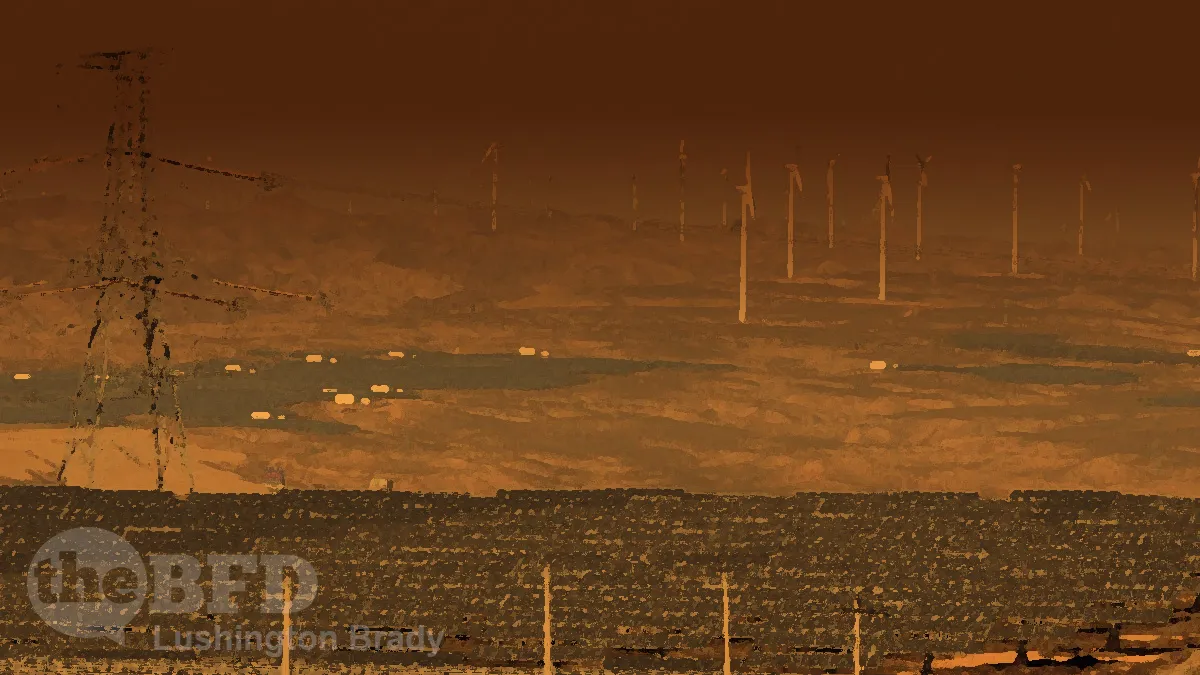Table of Contents
Despite the similarities in their names, the Nationals in Australia should not be confused with New Zealand’s National party. There are similarities, of course – the Nationals are in coalition, after all, with the real trans-Tasman cousin to National, the Liberal Party – but key differences. The Nationals are what used to be called the Country Party.
Although, like National in NZ, the Coalition has long been a blue-green party, too preoccupied with playing catch-up to the radical left, the Nationals at least have to answer to their rural constituents. And their rural constituents actually have to live with the consequences of the green-left’s lunar environment policies. And they’re not happy.
After all, when you live in inner Sydney or Melbourne, it’s easy to assume that the “renewable” electricity charging your Tesla is “environmentally friendly”. Folk in the country, on the other hand, are seeing first-hand the wreckage wrought by such cretinous policies as “Net Zero”.
They’re calling their representatives to heel.
The Nationals leader, David Littleproud, will face a concerted push at the federal conference of the party this weekend to dump its commitment to achieving net zero emissions by 2050.
Guardian Australia has obtained a copy of a motion submitted by Barnaby Joyce’s federal electorate council in New England that calls on the Nationals parliamentary party room to “abolish its policy of net zero by 2050, and adopt a policy that will reduce Australia’s CO2 emissions in collaboration with the rest of the world”.
Naturally, the Grauniad clutches its pearls. Far-leftists that they are, they actually think the dripping-wet, blue-green conservatives-in-name-only are “moderates”.
The Nationals’ rank-and-file, on the other hand, actually live in the environment, unlike Guardian readers, who are the most urbanised humans on the face of the planet.
As well as dumping net zero, the new motion championed by the New England FEC also calls on the Nationals party room to “ensure that any policies relating to CO2 emissions do not negatively affect on-farm production of food and fibre”.
We country folk are also the ones having to live with the reality of wind turbines, solar panels and transmission lines ripping up the landscape, and replacing bush and production farmlands with acres of silicon, fibreglass and concrete.
Joyce said he would express a view on the motion at the Nationals’ conference “but right now in New England and many parts of Australia, the biggest issue I’m getting run over with is transmission lines, the diminution of value of people’s properties and … being surrounded by a new industrial park”.
“We seem to be wearing this: the transmission lines, the windfarms and solar factories in New England,” he said. “Everywhere else gets to feel virtuous, but we get completely run over with the impediments. You don’t hear any proposals to put wind and solar factories in [Sydney’s] North Head or Middle Head or transmission lines in Sydney or off the beaches. It wouldn’t be tolerated, understandably.”
Joyce declared renewables projects and transmission lines were “turning the whole landscape into an industrial park” on behalf of the residents of cities and these were “completely changing” the landscape “for the worse”.
“They don’t want any part of the infrastructure but they want the virtue of the source [of renewable energy].”
The Guardian
The instant they built a wind farm in front of the harbourside mansions, carpeted Fitzroy and Brunswick in solar panels, or bulldozed a massive new transmission line through the middle of Canberra, “Net Zero” would be dumped like the toxic potato it is.
Instead, it’s country folk who have to wear the consequences of the urban green-left’s deranged obsessions.
And they’ve had enough.









